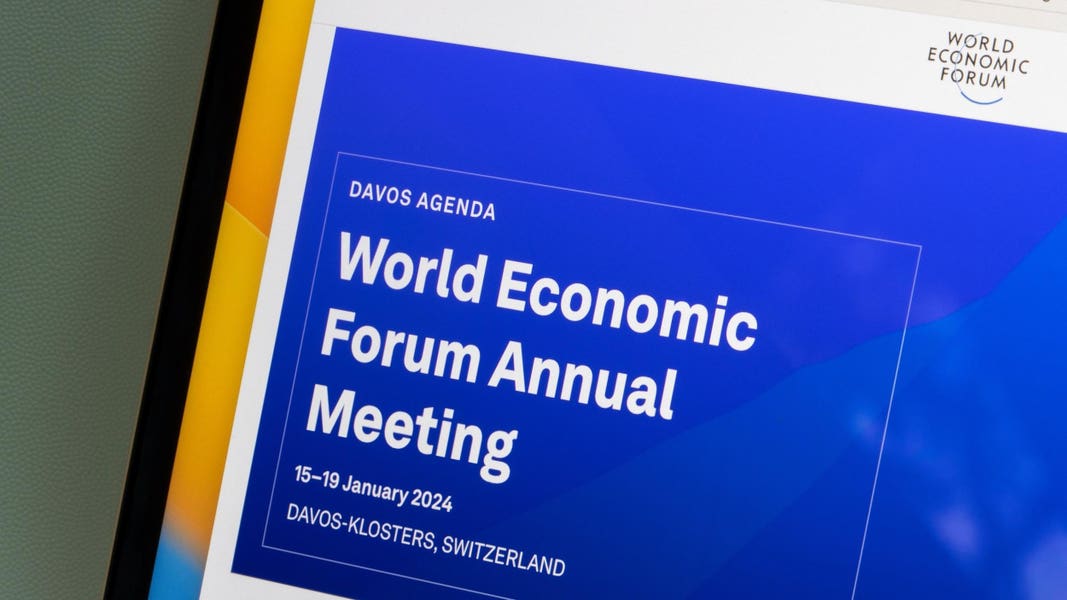The World Economic Forum Annual Meeting held in Davos this year underscored the increasing significance of artificial intelligence (AI) in our global landscape. From January 15th to 19th, 2024, a diverse array of global leaders, tech innovators, and intellectuals congregated to address paramount economic, political, and social issues, with AI prominently featured. The conversations emphasized the transformative capacity of AI and accentuated the necessity for innovative and cautious governance.
In 2023, AI reached a pivotal point in its journey towards mainstream acceptance. Its influence on employment and worldwide regulations is indisputable, indicating a transformation in the employment sphere and mandating a fresh approach to productivity, wage growth, and education.
Shifting Focus to the Job Market in the AI Era
The International Monetary Fund’s report “Gen-AI: Artificial Intelligence and the Future of Work,” unveiled at Davos, presented a concerning outlook: as much as 60% of jobs in advanced economies face jeopardy due to AI. This alarming statistic sparked intense deliberations concerning the future of work, highlighting the criticality of skills training and adaptation.
Prominent figures such as Sam Altman, CEO of OpenAI, Klaus Schwab, Founder of the World Economic Forum, and Satya Nadella, CEO of Microsoft, elucidated the demystification of AI. They underscored the significance of equipping individuals with the requisite skills to leverage AI’s advantages while managing its associated risks.
A panel featuring CEOs from major corporations like Deloitte and Sanofi delved deeply into AI’s role in augmenting workplace efficiency and job landscapes. French President Emmanuel Macron stressed the imperative of job generation, particularly in eco-friendly sectors, and the adjustment of educational systems to meet the demands of an AI-driven job market. The “Race to Reskill” session further highlighted technology’s role in expediting skill enhancement.
The session “Generative AI: Steam Engine of the Fourth Industrial Revolution?” transcended the hype, concentrating on reskilling as indispensable for capitalizing on AI’s benefits. Hadi Partovi underscored a pivotal transition: the real challenge lies not in job displacement by machines but by individuals proficient in AI. He advocated for the integration of AI education to prepare citizens, especially the youth, for a world enhanced by AI.
In ‘Technology in a Turbulent World,’ Sam Altman provided profound insights into AI’s future trajectory. He deliberated on how AI, despite its limitations, is already instigating substantial productivity enhancements. Altman accentuated the necessity of comprehending AI’s reasoning processes for fostering trust and reinforced the enduring value of human connections, asserting that AI cannot supplant our need for care and interaction.
An intriguing discussion featuring Neal Mohan of YouTube, Daren Tang from WIPO, Almar Latour of the Wall Street Journal, and artist Krista Kim delved into Generative AI’s impact on creativity. They tackled intricate issues such as the copyrighting of AI-generated content and distinguishing between human and machine creations. Tang advocated for collaborative endeavors to establish interoperability standards and best practices, reflecting a global trend towards more integrated AI systems.
Altman envisaged a shift towards more idea-centric roles, facilitated by AI’s capability to elevate job functions to higher levels of abstraction. He expressed optimism regarding AI value alignment, noting significant progress from GPT-3 to GPT-4. However, he acknowledged the complexities in defining and aligning these values and called for societal engagement in establishing ethical and safety standards.
Advocacy for Ethical and Responsible AI Utilization
Philosopher Michael Sandel raised profound ethical queries about AI, delving into its impact on human authenticity and the blurring boundaries between virtual and real human connections. These philosophical inquiries prompted a deeper contemplation of our interaction with technology.
The imperative for responsible AI governance reverberated throughout Davos, with appeals for a balanced approach that nurtures innovation while mitigating risks. Chinese Premier Li Qiang stressed the significance of global AI governance mechanisms. Leaders like Microsoft President Brad Smith discussed the harmonization in AI regulations, accentuating a shared understanding of fundamental issues and strategies to address them.
Vera Jourová of the European Commission contended that regulation is pivotal for AI risk management, and Jeremy Hunt, the UK’s Chancellor of the Exchequer, advocated for ‘light touch’ regulation and global collaboration in AI. The discussions stressed the importance of maximizing AI’s potential while safeguarding against misuse. Yann LeCun and Daphne Koller’s dialogue on generative models further underscored the necessity for a balanced approach to innovation and regulation. Google’s Ruth Porat highlighted the significance of cybersecurity in the AI era.
Davos 2024 showcased the omnipresence and significance of AI in contemporary society. It underscored AI’s vast potential to reshape economies and societies while also drawing attention to the critical need for balanced governance, ethical considerations, and skill development. As AI continues its evolution, the dialogues and decisions at forums like Davos will play a pivotal role in shaping its course for the benefit of all.






